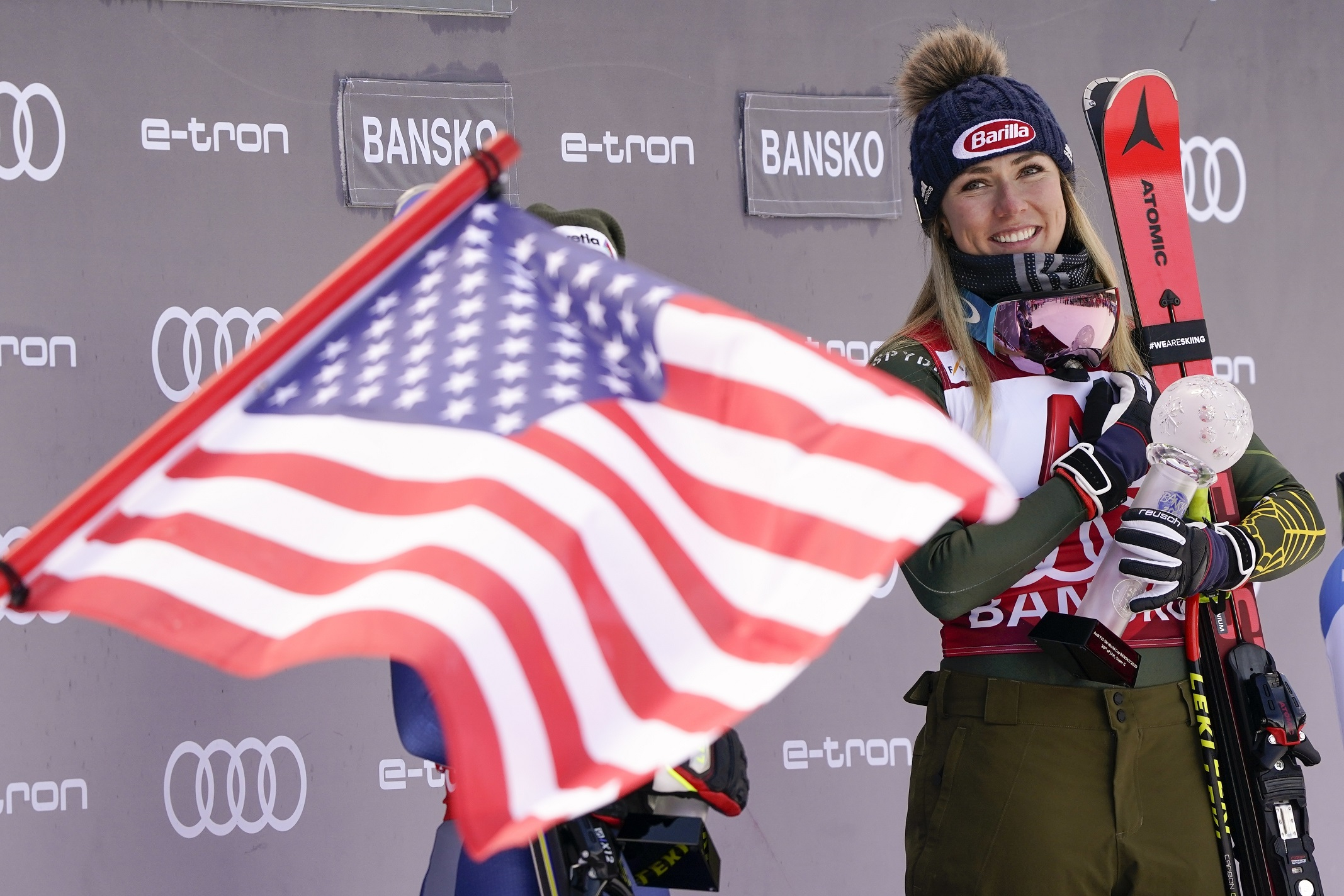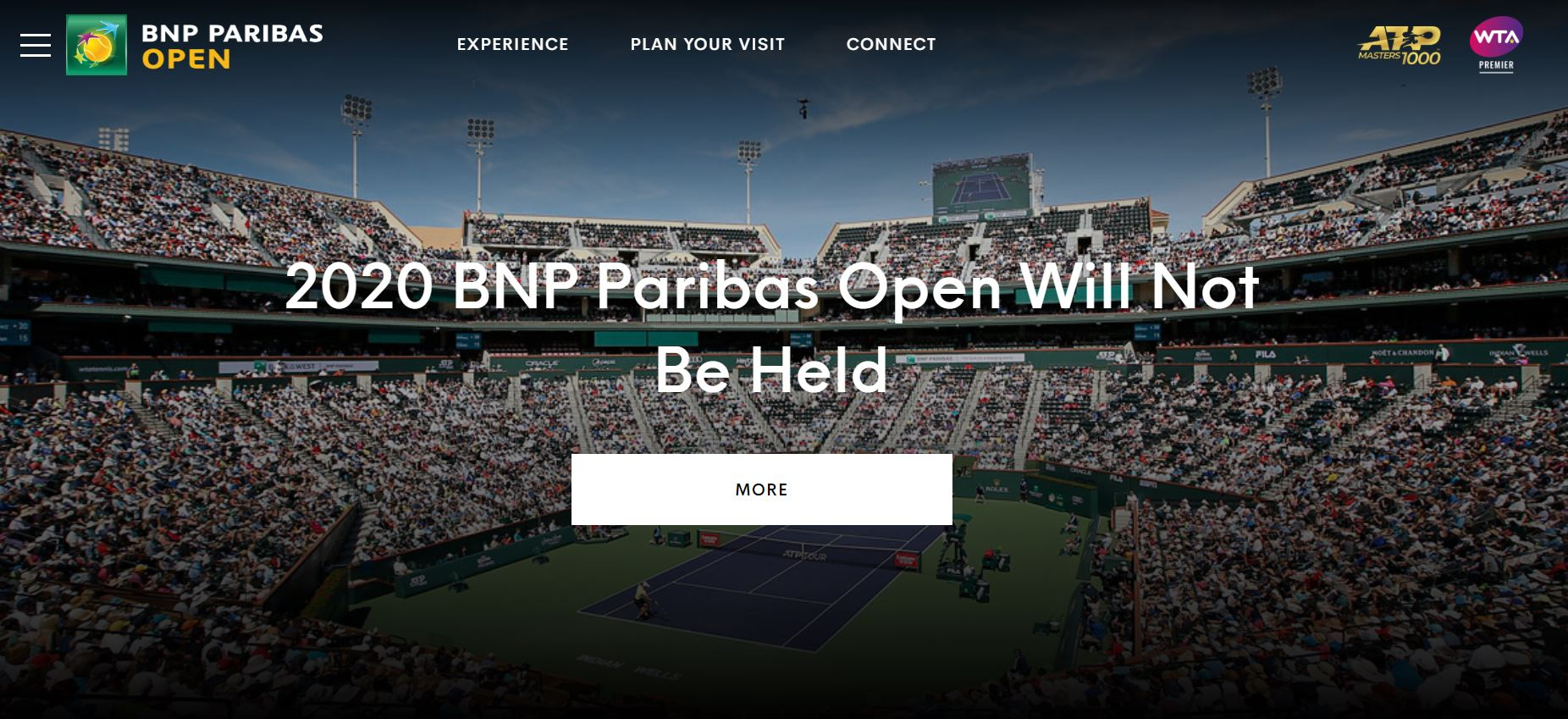
Announcements that tennis tournaments, Formula 1 races and football matches have been cancelled or will be held behind closed doors are dropping almost daily as authorities worldwide race to contain the COVID-19 epidemic.
But while organizers prioritize the health and safety of athletes and spectators, for those in the running for a trophy, the timing couldn't be worse.
Those few extra points
The COVID-19 has wreaked havoc on this year's sports agenda as the number of cases worldwide has topped 110,000 with over 4,000 deaths, and authorities seek to limit any event that may attract large crowds.
The F1 Grand Prix in Shanghai was postponed and the one in Bahrain will be held with no spectators. Top-flight football games in Italy, France and Spain will be played in empty stadiums for the next few weeks. Rugby, hockey, athletics and baseball have also been hit hard by the virus.
Meanwhile, travel restrictions and flight suspensions have created a headache for athletes who routinely compete one week in one country and the next in another, especially for teams traveling from affected areas.
But with organizers now scrapping events altogether, this is having a knock-on effect on results.
For major outdoor winter sports, the season is coming to an end, when points won over the last six months are tallied and top athletes are crowned as king or queen of their discipline.
The International Ski Federation (FIS) announced last week however that it was cancelling the end-of-season alpine skiing World Cup finals, due to be held in Cortina d'Ampezzo in northern Italy, one of the regions worst hit by COVID-19 outside China.

U.S. skier Mikaela Shiffrin smiles on the podium after winning a women's World Cup super-G in Bansko, Bulgaria, January 26, 2020. /AP
U.S. skier Mikaela Shiffrin smiles on the podium after winning a women's World Cup super-G in Bansko, Bulgaria, January 26, 2020. /AP
The move culled nine races – not to mention a major event on the World Cup circuit – from the calendar, throwing a wrench in the plans of many athletes who were banking on these events to score more points and secure a prized crystal globe.
But it took on special importance because the reigning snow queen, U.S. skier and Olympic champion Mikaela Shiffrin, took a month off following the death of her father and is now behind on points with just four races to go this weekend, leading to a possible upset.
In tennis, the announcement on Sunday that organizers were cancelling the BNP Paribas Open at Indian Wells, after local authorities declared a public health emergency, made waves a day before qualifying was to begin.
It also raised questions over what will happen to players' points. Under the current rules of the ATP tennis federation, points earned at any tournament are automatically dropped after 52 weeks. Unable to defend his title, last year's men's singles winner Dominic Thiem – newly ranked third in the world – could lose 1,000 points in the ATP ranking.
More worrying for many is the prospect of this summer's Olympic Games in Tokyo being cancelled: an event that only happens every four years, it is generally seen as the culmination of an athlete's career. To scrap it would wipe out years of training and sacrifices made in the hope of winning Olympic gold.
Former British field hockey player and Olympic champion Samantha Quek said as much in a recent column in the Daily Mirror: "Even if I was told there was a 100-percent chance I would contract the virus, I would still want to go and compete in Japan this summer."

CGTN screenshot of the BNP Paribas Open's official website
CGTN screenshot of the BNP Paribas Open's official website
Let the champions compete
Some authorities have acknowledged the impact that anti-COVID-19 measures are having on athletes.
After Italy announced it was suspending all sports events until early April, the country's winter sports federation on Monday said "those who are in the running for an overall or individual trophy, or for a significant place in the final ranking" would still be allowed to compete.
Among others, it cited its alpine skiing, biathlon, ski jumping, snowboard cross and speed skiing teams: Italians Federica Brignone and Dorothea Wierer currently lead in the overall women's alpine skiing and biathlon World Cup rankings, while their compatriot Simone Origone tops the table in speed skiing.
To cancel or not?
Adding to the level of anxiety and uncertainty among athletes, international tournaments and races have been cancelled or postponed on a case-by-case basis, largely dependent on whether a country is seriously affected by COVID-19 and on organizers' individual risk assessment, with little overall coordination.
French biathlete and five-time Olympic champion Martin Fourcade slammed organizers' "incoherence" after World Cup races in the Czech resort of Nove Mesto over the weekend were given the go-ahead but without spectators present.
"Czech fans won't be able to attend the races but there aren't any concerns about the biathlon caravan going there even though we were all in Italy just seven days ago," he tweeted.

CGTN screenshot of Twitter
CGTN screenshot of Twitter
Countries like Italy, the Czech Republic and Norway have gone the farthest in limiting crowds at sports events. But as Fourcade pointed out, athletes travel from race to race and from country to country almost every weekend, meaning localized measures make little sense.
Austrian Ski Federation President Peter Schroecksnadel, who pushed for the World Cup finals in Cortina to be shelved, also questioned "if you don't allow spectators, why allow the athletes? ... Should we really expose athletes to this risk?" noting they would come into contact with locals and event staff off the race course.
News this week that two people working on ski jumping World Cup races, including a top race official, had been put under quarantine as a precaution seemed to confirm these fears.
Domino effect
Indian Wells was one of the biggest events so far to be scrapped and now players and sports commentators are worrying this could have a domino effect and other major tournaments could be axed on short notice, creating further disruption.
After Italy, neighboring Austria's decision on Tuesday to cancel all major international events has led to half a dozen ski and snowboard races being called off. With COVID-19 cases already in over 100 countries and regions and spreading fast, other countries could quickly follow suit.
"Doesn't bode well for the tour if IW [Indian Wells] cancelled for one confirmed case in Coachella Valley," tennis player Jamie Murray tweeted on Monday, imagining a similar fate for the next big dates on the tennis calendar. "Broward county (Miami Open home) has more confirmed cases. Monte Carlo borders northern Italy currently in lockdown. Rome Masters? French Open? Wimbledon?!!!"
(Cover image: Dominic Thiem celebrates after defeating Roger Federer in the men's final at the BNP Paribas Open tennis tournament in Indian Wells, California, March 17, 2019. /AP)